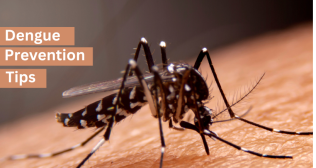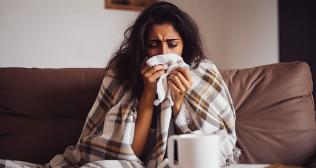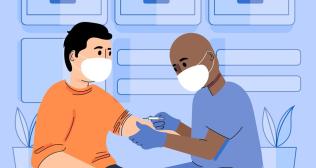
Zika Virus: Treatment and Prevention
When a health threat emerges for which there is no specific cure or vaccine, it is natural to feel a sense of vulnerability. This was the worldwide sentiment during the height of the Zika outbreaks. The conversation was dominated by what we could not do: we could not cure it, and we could not vaccinate against it. This reality, however, should not lead to helplessness. Instead, it must shift our focus to what we can do. In the case of the zika virus disease, knowledge and prevention are our most powerful tools.
Understanding the virus, from how it spreads to the specifics of its treatment, transforms fear into proactive, informed action. While we cannot eliminate the virus from the environment, we can take decisive steps to protect ourselves and our families from its reach and, most importantly, from its most serious consequences.
Understanding How the Zika Virus Is Spread
The cornerstone of any effective prevention strategy is a clear understanding of the enemy. The primary way the zika virus is spread by is the bite of an infected mosquito of the Aedes genus. These are the same relentless, day-biting mosquitoes that transmit dengue and chikungunya, and they are masters of living in close proximity to humans.
The cycle begins when an Aedes mosquito bites a person who has an active Zika infection. The mosquito ingests the virus along with the blood. After a few days, the virus has replicated inside the mosquito, turning it into a carrier. From that point on, every person that mosquito bites is at risk of infection. Because these insects breed in tiny amounts of standing water, from a bottle cap to a garden pot saucer, they thrive in our communities. This makes mosquito control a community-wide effort.
While the mosquito is the main culprit, it is critically important to know the other ways the zika virus is spread by, as these routes have significant implications for public health.
From Mother to Child During Pregnancy
This is the mode of transmission that causes the most severe outcomes of the zika virus disease. A pregnant woman who becomes infected can pass the virus across the placenta to her developing fetus. This congenital Infectious Diseases can disrupt brain development, leading to devastating birth defects, most notably microcephaly. This risk is why all prevention efforts are so intensely focused on protecting pregnant women.
Through Sexual Contact
One of the most concerning discoveries during the major outbreaks was that the Zika virus can be transmitted through sexual contact. An infected person can pass the virus to their sexual partners, even if they never develop symptoms themselves. Evidence shows the virus can remain viable in semen for months, long after it has cleared from the bloodstream. This makes sexual transmission a key consideration for zika virus prevention, particularly for couples planning a pregnancy.
Via Blood Transfusions
In rare instances, the virus has been transmitted through blood transfusions. Blood donation centers in at-risk areas have implemented screening protocols to safeguard the blood supply, making this a very low-risk mode of transmission for the general public.
The Approach to Zika Virus Treatment
When patients ask about zika virus treatment, the first and most important point to clarify is that there is no specific antiviral medication to cure the infection. Just as there is no specific cure for the common cold, there is no pill to eliminate the Zika virus from the body. The infection must simply run its course.
Therefore, the entire focus of zika virus treatment is supportive care, which means managing the symptoms to keep the person as comfortable as possible while their body's immune system fights off the virus.
Managing the Symptoms of the Disease
For the minority of people who do develop symptoms, the illness is typically mild and lasts for about a week. Supportive care is straightforward and can be done at home:
Get Plenty of Rest: Allowing your body to rest helps the immune system dedicate its energy to fighting the infection.
Stay Hydrated: Drink plenty of fluids, such as water and electrolyte solutions, to prevent dehydration, especially if you have a fever.
Relieve Pain and Fever: Medications like acetaminophen can be used to reduce fever and alleviate the joint and muscle pain associated with the illness.
A Critical Warning About Certain Medications
It is absolutely crucial to avoid taking aspirin and non-steroidal anti-inflammatory drugs (NSAIDs) like ibuprofen and naproxen if you suspect you have Zika. The symptoms of the zika virus disease are very similar to those of dengue fever. In a person with dengue, these medications can increase the risk of bleeding and lead to a more severe illness. Until dengue can be definitively ruled out, acetaminophen is the only recommended fever reducer.
The Cornerstone of Zika Virus Prevention
Since there is no cure or vaccine, zika virus prevention is the only strategy that matters. All public health efforts are aimed at stopping the virus from spreading in the first place. This involves a multi-pronged approach that targets the different ways the zika virus is spread by.
Protecting Yourself from Mosquito Bites
This is the most critical line of defense. Taking these steps can dramatically reduce your risk of being bitten:
Use EPA-Registered Insect Repellent: Consistently use a repellent containing ingredients like DEET, picaridin, or oil of lemon eucalyptus on exposed skin.
Wear Protective Clothing: When in mosquito-prone areas, wear long-sleeved shirts and long pants.
Mosquito-Proof Your Home: Use screens on windows and doors to keep mosquitoes out. Sleep under a mosquito net if your sleeping area is exposed to the outdoors.
Eliminate Breeding Grounds: Once a week, empty and scrub anything that holds standing water, such as tires, buckets, planters, toys, and birdbaths.
Preventing Sexual Transmission
Clear communication and precaution are key. If you or your partner have traveled to an area with a risk of Zika, public health agencies recommend using condoms or abstaining from sex for a period of time after returning to prevent passing the virus. This is especially important for couples who are pregnant or trying to conceive.
Special Precautions for Pregnant Women
Given the severe risk of birth defects, pregnant women should not travel to any area with an ongoing Zika outbreak. If travel is unavoidable, it is essential to speak with a doctor first and to be extremely vigilant about preventing mosquito bites during the entire trip.
A Proactive Stance for Your Health and Safety
The zika virus disease presents a unique challenge, a usually mild illness that carries a rare but catastrophic risk. This reality underscores the immense power and importance of prevention. It is the single most effective tool we possess to protect the most vulnerable among us.
Stay informed about current travel health notices and commit to protective measures like using insect repellent and eliminating mosquito breeding sites. Always consult with your healthcare provider if you have concerns, especially if you are pregnant or planning to start a family.
Frequently Asked Questions
Q1. Why is Zika so dangerous if the illness is usually mild?
Ans. The danger of the zika virus disease is not in the acute illness for the infected person, which is typically mild. The danger lies in its potential to cause severe birth defects, known as congenital Zika syndrome, when a pregnant woman is infected. It can also, in rare cases, trigger a serious neurological condition called Guillain-Barré syndrome in adults.
Q2. How long should I wait to get pregnant after visiting a Zika-risk area?
Ans. Current public health recommendations may vary, so it's essential to check with your doctor or a public health agency like the CDC for the most up-to-date guidance. Generally, it has been recommended that women wait at least two months and men wait at least three months after the last possible exposure before trying to conceive.
Q3. Is there a vaccine for the Zika virus?
Ans. No, there is currently no vaccine available to the public for zika virus prevention. While research is ongoing, protecting yourself from mosquito bites and preventing sexual transmission remain the only ways to avoid infection.
Q4. What should I do if my partner has traveled to an area with Zika?
Ans. To protect yourself from the risk of sexual transmission, you should use condoms for any type of sex or abstain from sex for the recommended period after your partner returns. This is particularly critical if you are pregnant or trying to become pregnant.



















